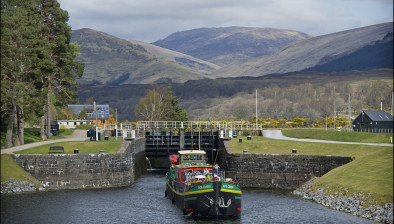Stephen Good: Scotland’s race against climate change - does net zero mark the finish line?
Construction Scotland Innovation Centre CEO Stephen Good asks whether net zero is enough and whether Scotland could in fact go further to tackle climate change.

Stephen Good
With just a few months to go until the COP26 summit in Glasgow, sustainability is fast becoming the defining theme in public discourse. However, we are far from the finish line in Scotland’s fight against climate change. November’s event might mark the start of a 25-year journey to achieving ambitious carbon targets but reaching net zero should not mark the end.
To truly tackle the global climate emergency, we need a complete paradigm shift, from making small incremental changes to embedding sustainability within the fabric of our economic systems. Sustainability can’t be an after-thought or implemented in half-measures. We are facing a crisis, but with a coordinated, collaborative approach we have the capability and expertise to go beyond net zero – particularly in sectors like property and construction.
The built environment is one of the biggest contributors to carbon emissions, which cannot be ignored. The sector, therefore, has a responsibility to drive change. Buildings and infrastructure underpin all aspects of our societies and communities serving us for work, rest, and play, and many of the solutions to climate change will sit within the property sphere. If we can get that right, new practices and approaches to sustainability will likely cross over into other sectors too.
Procurement will play a large part in the process. Many aspects of sustainability will require a shift in mindset from those who make the decisions, but in procurement terms, it’s about how we define and measure value. By rewiring the model to accommodate an innovative approach to procurement, organisations can start to procure innovation and work with contractors that challenge the norm.
Decarbonisation is one of the biggest challenges the construction sector has ever faced, and it will undoubtedly be a long road ahead. However – to use construction parlance - we already have the building blocks in place. In technical terms, we have proof that it can be done, but we need to supercharge the skills and capabilities to achieve the best possible results – and to do that at pace.
At the heart of any transformation project lies strong leadership and collaboration and, in this case, no single organisation, research team or innovation centre can solve the problem alone. The construction sector needs to work together to develop a delivery plan focused on outcomes that are aligned with national policies such as the Housing to 2040 vision and UN’s Sustainable Development Goals that will help to fight climate change.
There is no question that reaching net-zero will represent a significant milestone for Scotland. I’m not suggesting that we move the goal posts, but rather that we look at the entire picture of sustainability. Mainstream adoption of ‘green’ building practices is still held back by current frameworks and regulations but there are a range of processes and materials being developed throughout the industry.
When it comes to climate change, we’ll perhaps never be ‘done’. But, by taking a whole-life approach to carbon and developing circular materials through innovation - rather than choosing to offset too soon- we can develop the most sustainable built environment possible, fit for generations to come.















